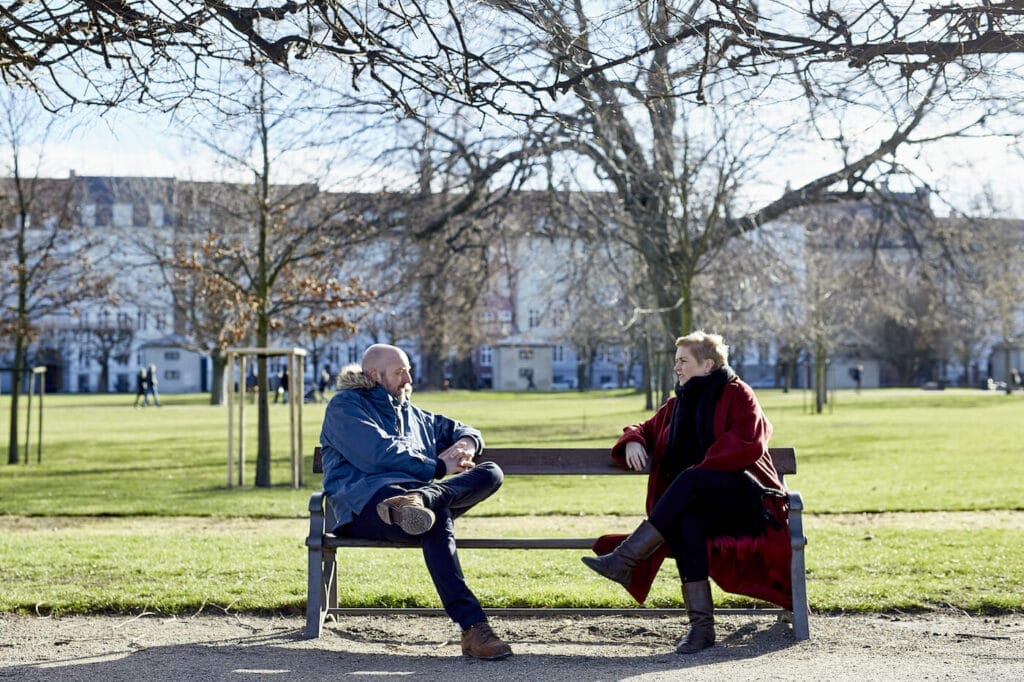This article is a reprint from the March 2019 DANES magazine.
Text: Theresa Nguyen, Freelance journalist
While the Danish government decides to cut international student numbers, the decision may be overlooking one crucial factor: Many graduates are forced to leave because landing a job in Denmark is an uphill battle, if not close to impossible – even with a Danish university degree.
in August 2018, the Danish government decided with support from the right-wing Danish People’s Party to cut up to 1,200 study places for international students. The reasoning underlying this decision is that too many foreign students leave Denmark upon graduation which is a costly affair. Yet, if we ask foreign students, many are leaving unwillingly because finding a paid job in Denmark is challenging – perhaps even too challenging according to Polly Martin, 33, who is fluent in French, Spanish, Italian and English. She can also get by in German and Danish, and has actively taken classes after completing her Master’s programme in Global Refugee Studies at Aalborg University in Copenhagen.
Polly Martin: “I grew up in France, I’ve lived in Spain, in the UK, Italy, Germany, India and America,
so I know what it’s like to start up somewhere new”
Since her graduation in November 2017, Polly Martin has applied for 60 jobs in Denmark, which has led to zero job interviews so far. She is currently doing an unpaid internship at a media production company so she can acquire some kind of experience, as her job hunting situation in Copenhagen is not likely to change anytime soon.
“I really want to stay in Denmark, but I’ve been unemployed for over a year now, which is the longest I’ve ever been unemployed. While being on unemployment benefits, I’ve interned and volunteered though finding a job in Denmark is insane. A lot of the NGOs and the UN offer internships for six months, but my A-kasse (the unemployment insurance fund) doesn’t allow me to do internships for more than one month (at the time, ed.).
So where I’m at now, they will have to change my job title after a month so that I can do another month. It’s so stupid and it’s something that very few companies are willing to do,” she says.
Danish is a must
Having lived in Copenhagen since 2015, British-born Polly Martin understands Danish culture and the Danes very well, particularly because her best friends are locals whom she met on a holiday in Spain. As for the difficulties with landing a job in Denmark, she believes that introverted Danes are a big part of the problem.
“The Danes are borderline xenophobic, but I don’t get it that hard because I’m a white, privileged female. I do love it here, but I also find that to be a very difficult stepping stone to get across. And I’m not saying that without knowing what it’s like to live abroad right – I grew up in France, I’ve lived in Spain, in the UK, Italy, Germany, India and America, so I know what it’s like to start up somewhere new.”
Another major challenge for foreigners who seek permanent work in Denmark is the Danish language, which is a great obstacle for non-Danish speakers, Polly Martin says.

fewer jobs that you can apply for. That’s why I decided to take proper Danish classes three months ago. I’m now at module 3, if I can get to module 5, which is considered to be the fluent level, then I can work anywhere.”
“If you don’t speak Danish, there are just incredibly fewer jobs that you can apply for. That’s why I decided to take proper Danish classes three months ago. I’m now at module 3. If I can get to module 5, which is considered to be the fluent level, then I can work anywhere.”
The language hurdle is also a reality that Sundas Shahid, 28, is facing in her current hunt for permanent work in the field of urban strategy, planning and development.
“When I moved to Denmark in 2016, I didn’t think that language would be something that would hold me back because Danes are so comfortable in speaking English, so I thought that was something I would find in the workplace as well, but that is not the case.”
Sundas Shahid completed her Master’s degree with the Erasmus Mundus programme which took her to six universities in four different European cities. She has now lived in Copenhagen for a total of one year, but never got around to taking Danish classes. When she actively started to look for work, she realised that only one in 30 offers are open to non-Danish speakers.
“I was not so aware of how big a part the language would play and how badly I would need Danish. If I’d known back then and started to learn Danish six months ago, it would’ve made sense, but now that I’m on a job-seeking visa which expires at the end of this year, I don’t think it’s the best use of my time to start to learn Danish,” Sundas Shahid says.
“It’s also a big commitment for a language that is not so useful in the rest of the world. If I decide to learn Danish, that means that Denmark becomes home and it’s not an easy country to make home – not just in terms of people or culture, but also politics and bureaucratic procedures and how much money I need to make in order to be sponsored.”
Denmark is missing out
The many complications that international students face when they start looking for work and internships show a very clear pattern to Rasmus Ursin Knudsen who manages Café Bang & Jensen, located in Vesterbro where he has employed close to 100 international students over the past ten years.
“In my experience, the vast majority of international students, who usually come here to study a Danish Master’s programme, wish to stay in Denmark. However, from what I hear and see, it’s very, very difficult for them to get a job afterwards. They try really hard, and some even leave just to come back because they truly want to become a part of the Danish labour market.”
Over the years, Rasmus Ursin Knudsen has also noticed how international students typically live very structured lives and tend to take their studies more seriously compared to the average Danish student.
“The international students are generally very dedicated, bright and disciplined. They have made an actual choice about coming to study in Denmark, and that is reflected in the way they live and work as students. This is also why I don’t understand the lack of efforts in keeping them in the Danish workforce once they’ve finished their degrees. It seems to me that the Danish government is doing a half-finished job in recruiting international students, as we’re very good at getting them to come here, but not quite as good in keeping them, which is a shame.”
Rasmus Ursin Knudsen: “It seems to me that the Danish government is doing a half-finished job in recruiting international students”
Since 2007, the number of international students coming to Denmark has increased steadily. According to the latest figures from Statistics Denmark, 7,127 foreigners were enrolled in a university programme in 2017 alone, approximately 300 more than the year before.
With at least tens of thousands of international students passing through the Danish education system over the years, Rasmus Ursin Knudsen has often thought about a cost-benefit analysis in recruiting international students for the Danish labour market.
“Think about it – we only need to invest two years of student-related costs to get a fully qualified engineer for instance, compared to having to train a Dane from the age of six. This is a tremendously beneficial return on investment. And as far as I’m aware, we need more engineers, but the math only adds up if the international student doesn’t go home and can get a job.”

Contact the counselling service
Our lawyers can help with advice and case processing in areas such as family reunification, citizenship, tax, pension and moving in and out of Denmark.
Lovely, little Denmark
Putting all the obstacles aside, the positive aspects of Denmark are many, which explains why both Polly Martin and Sundas Shahid have not yet given up on finding a job or a relevant internship.
“I love biking around and the summer here is just amazing. Although it’s hard to make friends with Danish people, it’s an exciting time to be in Copenhagen. The structure of the city is changing, there’s a lot of excitement and young energy here. My advice to anyone who is considering moving to Denmark: Pack a winter jacket, a bottle of vitamin D and thick skin,” Sundas Shahid says.
To Polly Martin, receiving a free education and SU (state educational grant) has been an amazing opportunity, as tuition fees in the UK are now at 9,000 British Pounds per year for undergraduate programmes.
“Providing free education is how it should be everywhere in the world. The quality of my course wasn’t that great though. The content could’ve been meatier,” she says and discloses that the pressure of finding accommodation in Copenhagen, which she needs to do once again by the end of February, together with long-term unemployment has opened her job search to include the UK and Germany.
In the case of Sundas Shahid, the Pakistani has already mapped out plans A to E for the coming year. The five plans prioritise jobs, internships and PhDs in Denmark. If those options run out, she will apply for a Master’s programme in Germany before trying to immigrate to Canada. All the effort comes down to one reason, she explains:
“Because I’d like to not have the second worst passport in the world.”




